Congratulations to the award winners at the RSC Chemical Nanoscience and Nanotechnology (CNN) Early Career Symposium in London, UK!
This event was the first of the biannual early career researcher symposia of the RSC Chemical Nanoscience and Nanotechnology (CNN) Interest Group, bringing together early career scientists from PhD to PDRAs to Fellows and early-career faculty from across the full breadth of the nanoscale sciences. The meeting provides a forum for researchers to engage and exchange information, discuss challenges and build networks.
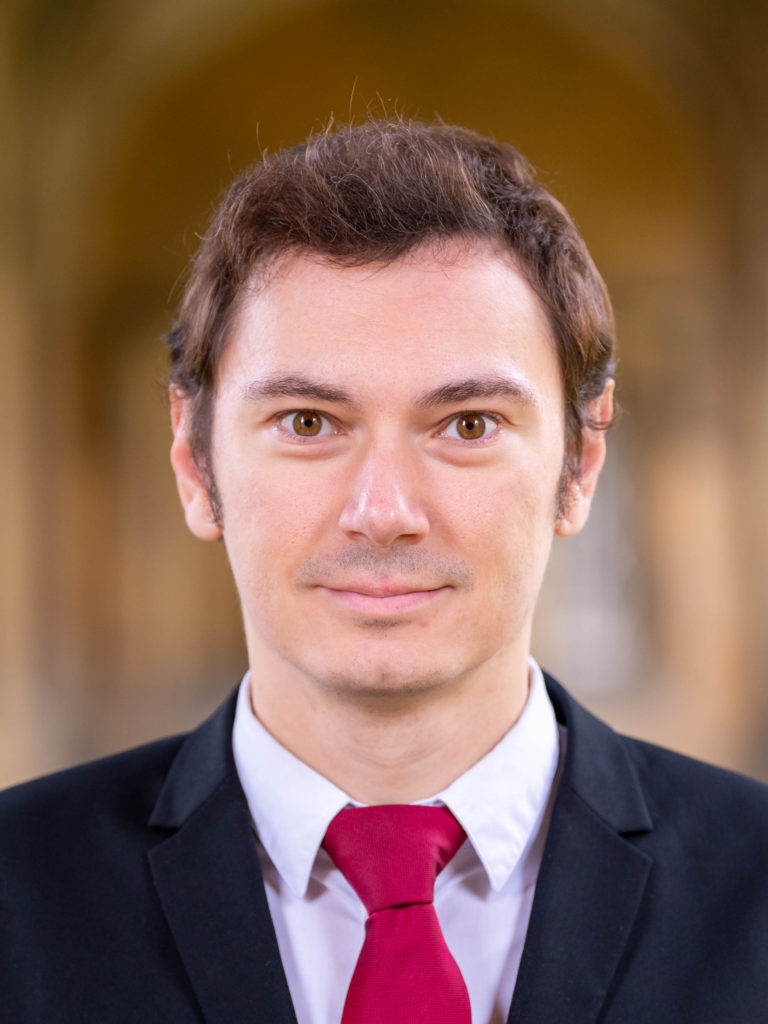 |
Dr. Virgil Andre (University of Cambridge)Best Talk PrizeDr. Virgil Andrei was born in Bucharest, Romania. He obtained his Bachelor and Master of Science degrees in chemistry from Humboldt-Universität zu Berlin, where he studied thermoelectric polymer pastes and films in the group of Prof. Klaus Rademann (2014–2016). He then pursued a Ph.D. in chemistry at the University of Cambridge (2016–2020), where he developed perovskite-based artificial leaves in the group of Prof. Erwin Reisner, working closely with the optoelectronics group of Prof. Richard Friend at the Cavendish Laboratory. He was a visiting Winton Fellow in the group of Prof. Peidong Yang at the University of California, Berkeley, and is currently a Title A Research Fellow at St. John’s College, Cambridge. His work places a strong focus on material design and practical applications, introducing modern fabrication techniques towards low-cost, large-scale solar fuel production.
|
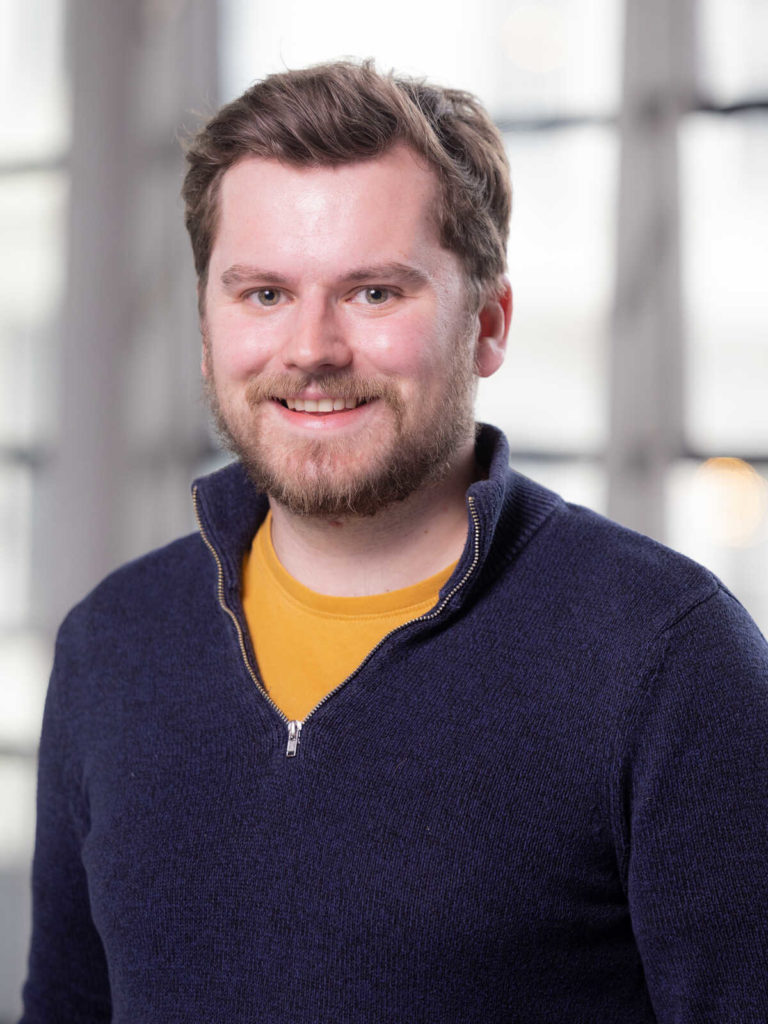 |
George Creasey (Imperial College London)Best Collaboration and Best Talk Runner up PrizeGeorge is a third year PhD student at Imperial College London, based in the Electrochemical Systems Laboratory in the Department of Chemical Engineering and supervised by Dr Anna Hankin and Dr Andreas Kafizas. His research addresses the engineering challenges of up-scaling solar hydrogen production. Through photoelectrochemical reactor design, scalable photoelectrode fabrication and outdoor field testing under operational conditions, George’s research is the cutting edge of future deployment of photoelectrochemical systems. Prior to his PhD, George completed a Master’s degree in Chemical Engineering at the University of Bath, with a year in industry at the UK government.
|
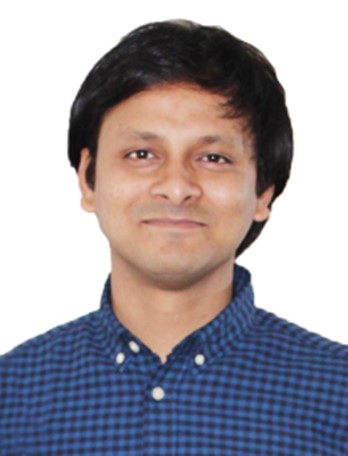 |
Dr Amit Sil (University of Liverpool)Collaboration prizeAmit obtained his M.Sc in Chemistry from Indian Institute of Technology Kharagpur in 2012. He was awarded a PhD (2018) from the same institution focusing on developing mixed-valence compounds and emissive polymers for near infrared (NIR) absorbing materials, sensors and optoelectronics. In 2019, he moved to Durham University (UK) with a postdoctoral (PDRA) position in Prof J. A. Gareth Williams group where he worked on developing functional luminescent Pt(II) and Ir(III) complexes for the application in NIR–OLEDs. In 2021, he joined as a PDRA in Prof. Andrea Vezzoli’s group at University of Liverpool (UK) and worked in the field of single molecular electronics and to investigate the piezoresistive properties of molecular devices. In 2024, he was promoted to Research Coordinator of the group and now his research interest is developing stable organic diradicaloids for single molecular electronics. |
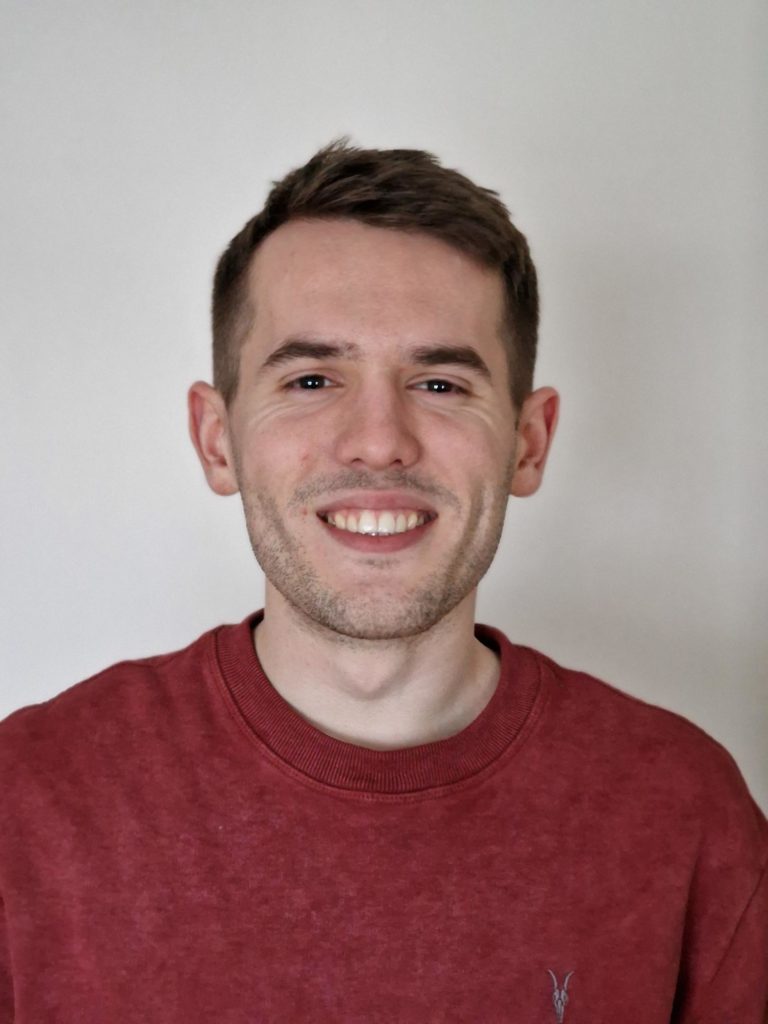 |
Eliott Studholme (University of Cambridge)Best poster prizeEliott received his master’s degree in chemistry from Swansea University in 2023, where he was supervised by Dr Emrys Evans in his final year project. His project focussed on the spin dynamics of chromium complexes for their application to photon upconversion systems. Inspired by the potential of photophysical processes like upconversion to contribute to green technologies, he is now a 2nd year physics PhD student at the Cavendish Laboratory, University of Cambridge. Under the supervision of Professor Neil Greenham, his research focuses on the synthesis, and structural and spectroscopic characterisation of silver chalcogenide quantum dots. His goal is to develop a hybrid inorganic-organic material capable of boosting the efficiency of silicon solar cells via the photophysical process of singlet fission. |
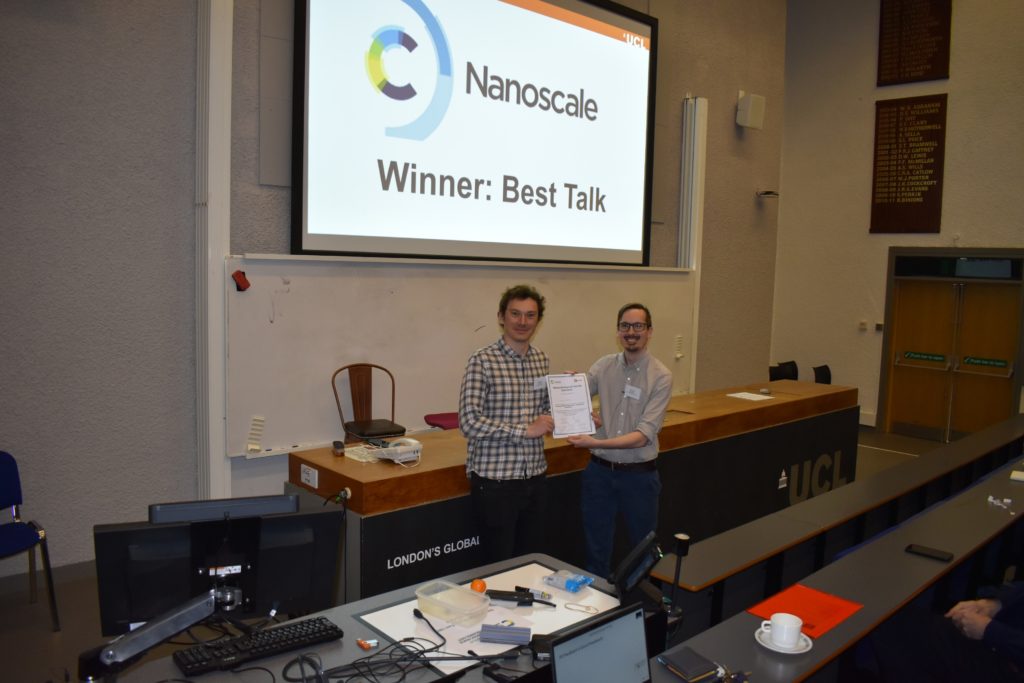 Virgil Andrei (left) being awarded the best talk prize by Adam Clancy (right) |
 George Creasey (left) being awarded the best talk runner up prize by Adam Clancy (right) |
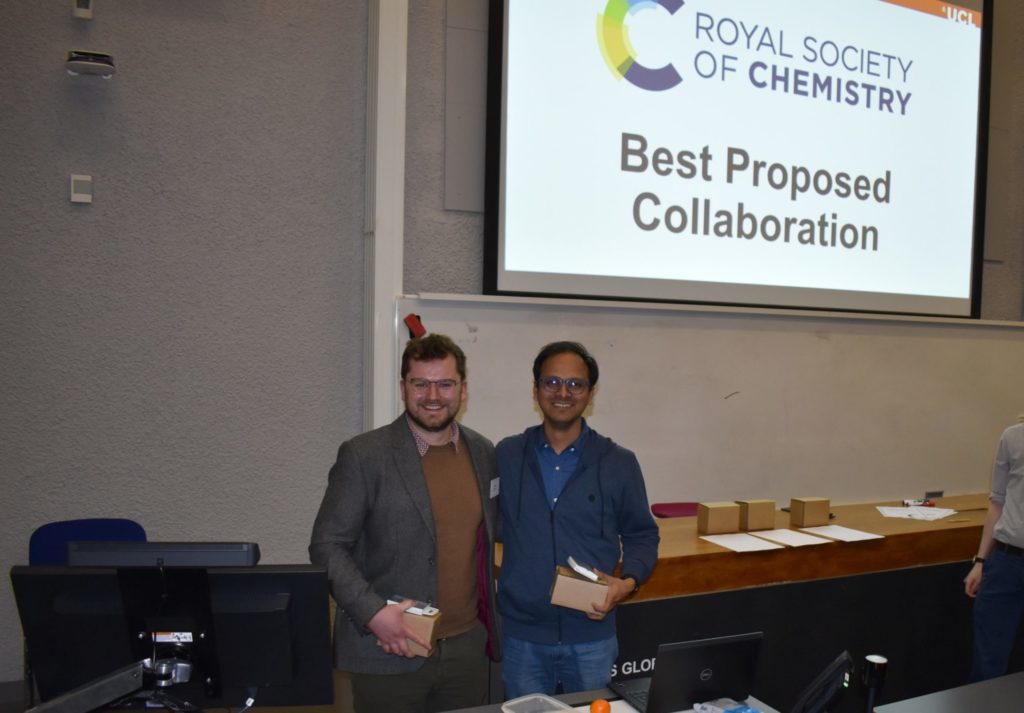 George Creasey (left) and Amit Sil (right) after being awarded the best proposed collaboration award. |
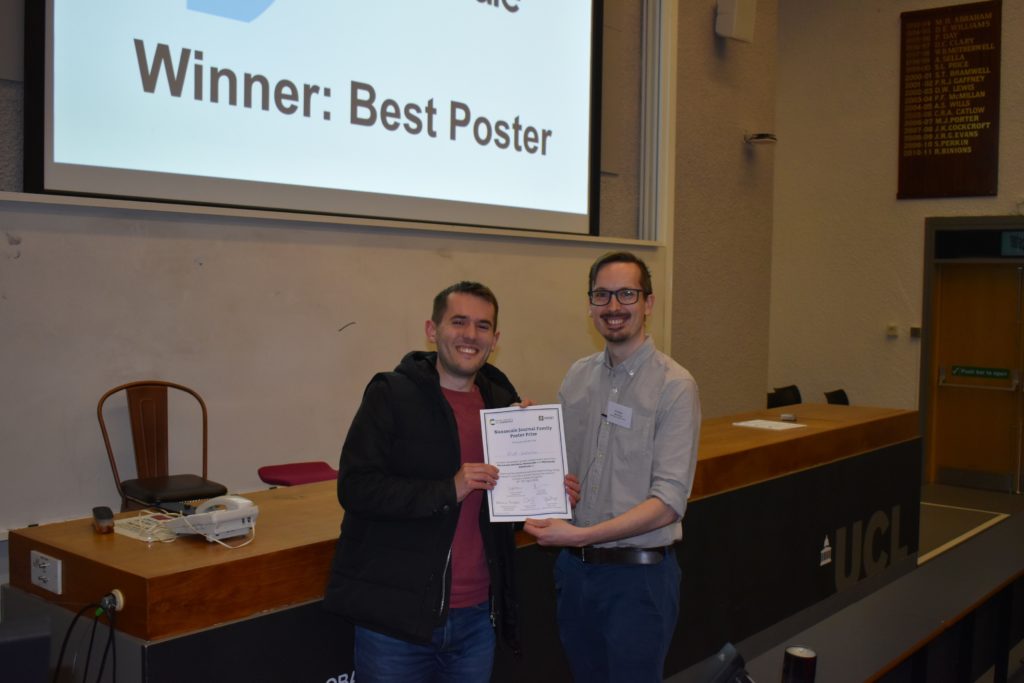 Eliott Studholme (left) being awarded the best poster prize by Adam Clancy (right) |










